How to create the best menus for care home residents
Good nutrition and hydration are at the heart of safe, quality care for the older generation. So how can we meet the drink and food requirements for the elderly in a care home environment?
If you can be successful as a chef in the care sector, you can be successful as a chef anywhere,” insists award-winning chef Darren Neal.
“It’s a tough job that needs resilience, but it’s also incredibly rewarding. I want my team to aspire to be number one in food, number one in care and for them to be recognised in both.”
The Executive Development Chef at Caterplus has 35 years of experience in the health, care and retirement living sectors and joined the organisation in 2017 as a Mobilisation Chef.
For the past six years he’s been the man leading the healthcare division of Elior UK’s hundreds of core care venues in thinking differently about what residents want – and need – from their food.
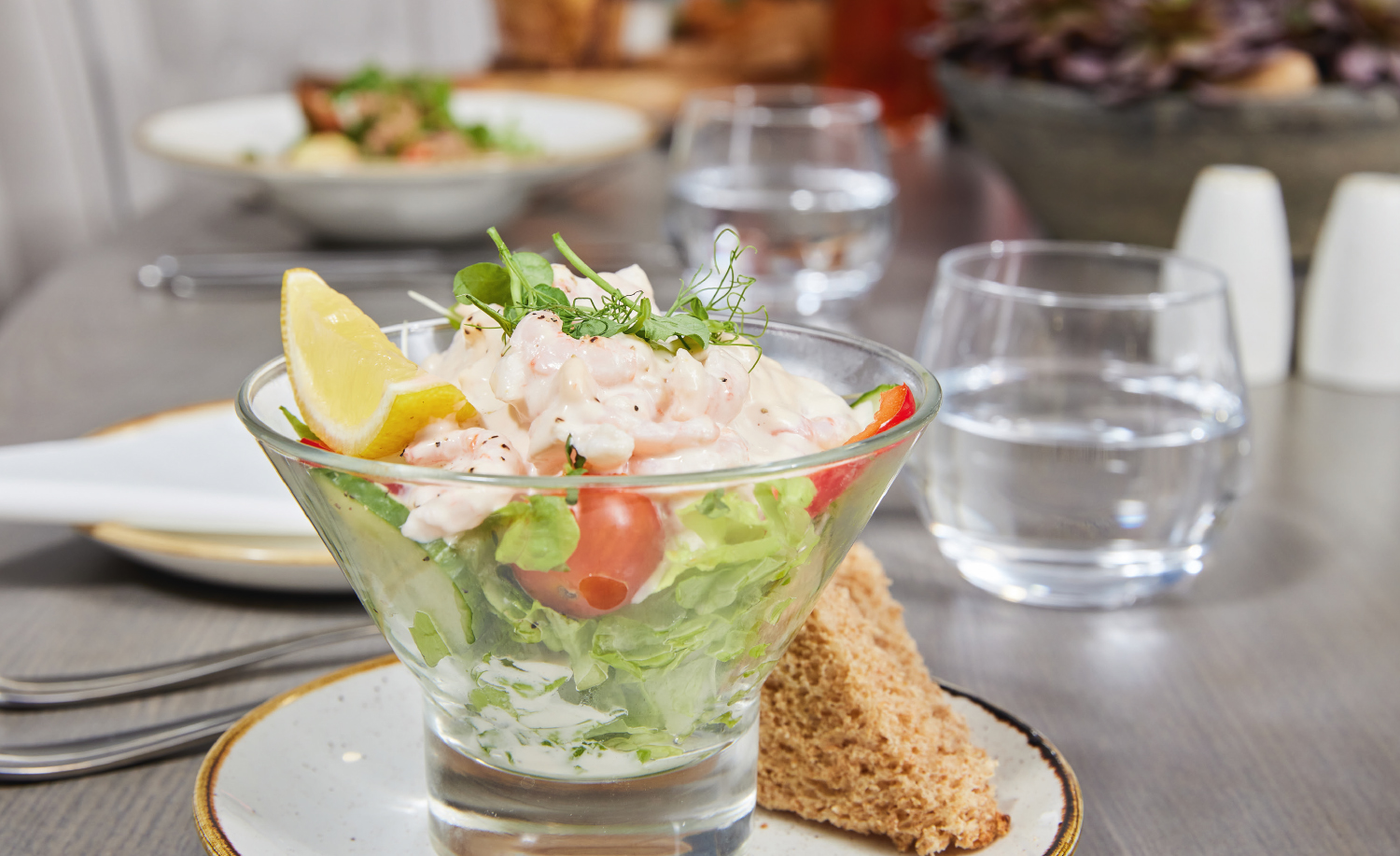
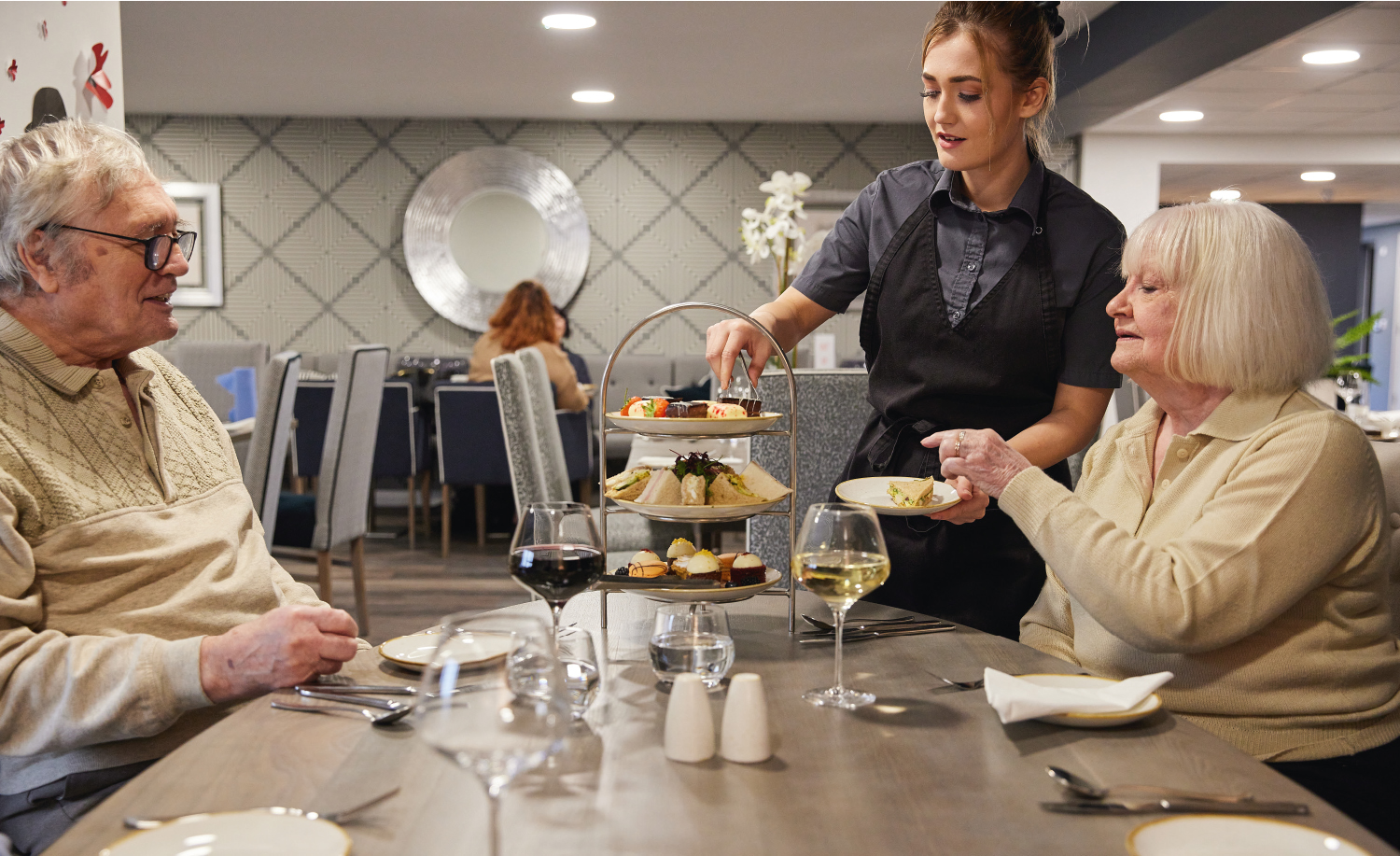
In high end restaurants and hotels, customers pay for their food and leave a tip if they like it, but in care homes people don’t have a lot of choice so you can’t expect a pat on the back.
That’s why we make sure that we’re always talking to the residents to make sure we give them what they want. When we get it right it really is the most rewarding job in the world.”
His team does it through:
“Lunch, dinner and afternoon tea are residents’ most social parts of the day, so you must get it right. Get it wrong and they will let you know in no uncertain terms.”
“Our menus can never be one size fits all because of the many ages, health issues, illnesses and geographical and demographic differences across the UK.
That’s why we launch a menu framework which is then modified and tweaked following workshop sessions with local operators who speak to their chefs for feedback which then helps inform their final menu.
Each dish is checked so it meets National Association of Care Catering nutrition guidelines, while a dietician also analyses all the fat and carbohydrate totals.”
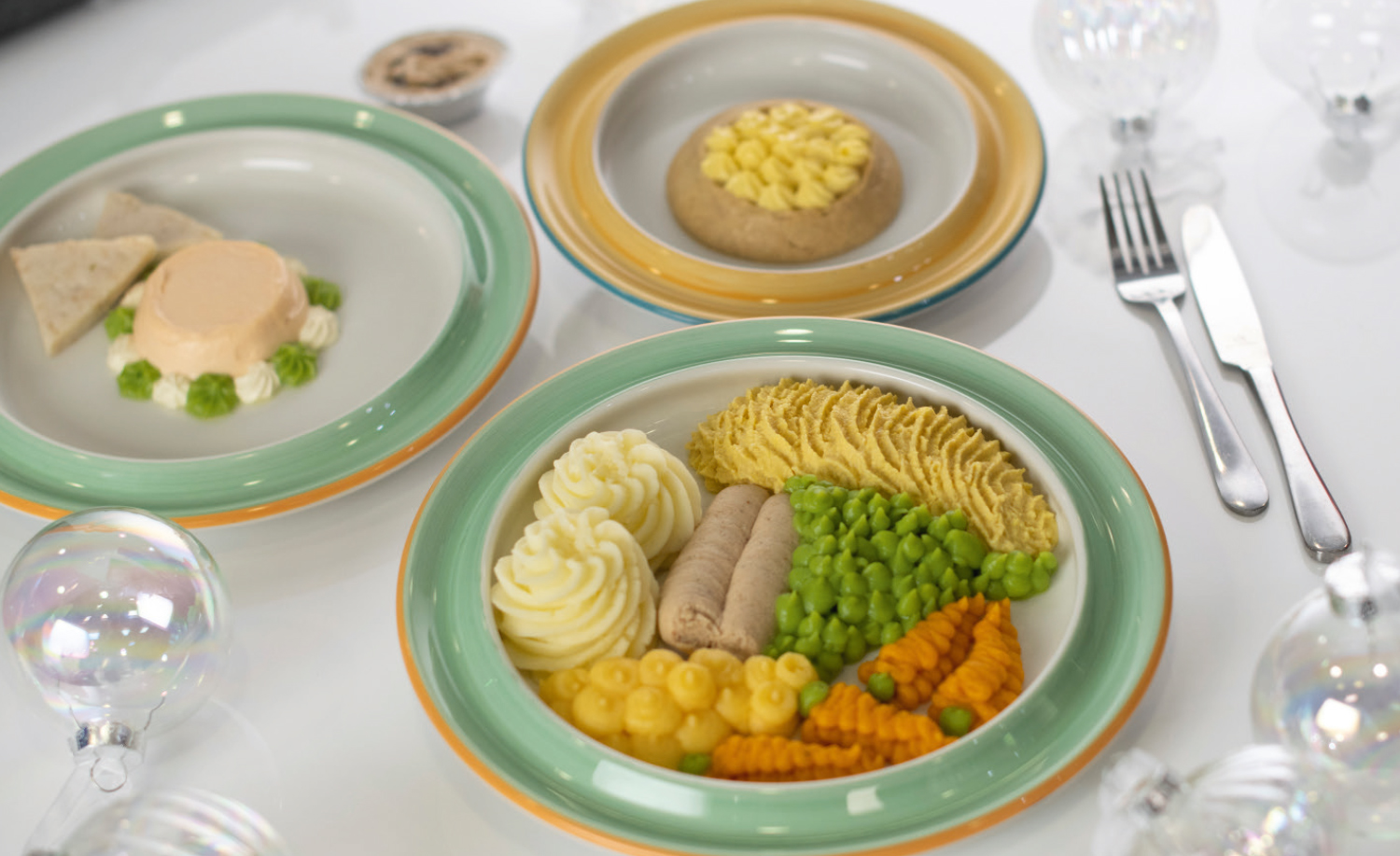
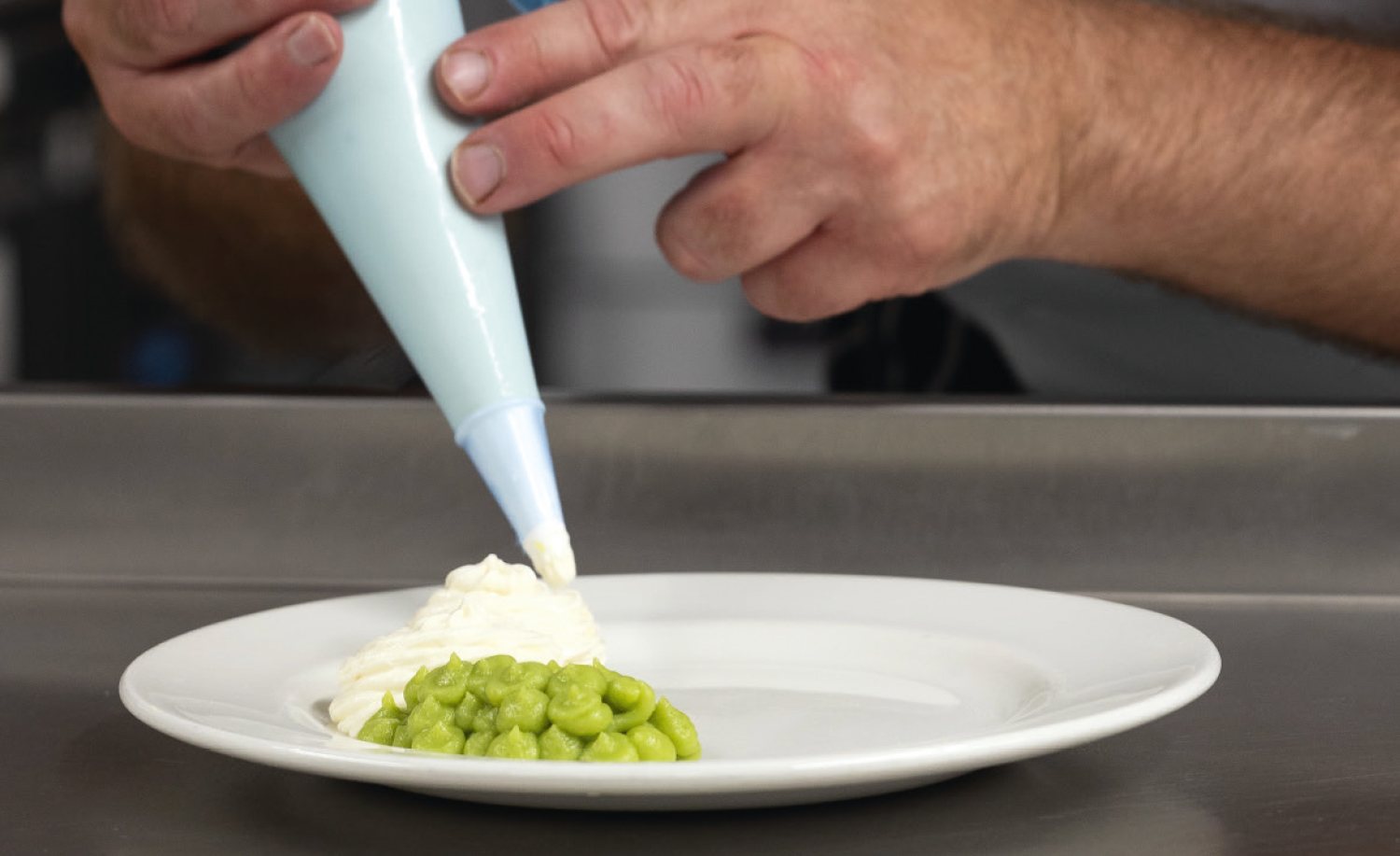
“Knowing customers’ tastes is more critical than ever in the care sector. We need to know residents’ health related dietary needs, allergies and preferences because not getting it right could be catastrophic.
In care and extra care settings we are going into their home, almost like a personal chef, so it’s acutely important for their health that we make a difference.”
“Matching menus to the needs of residents is challenging. If they feel they’ve lost their dignity alongside a decline in health, the last thing they might want is someone is cooking for them.
Your team must be imaginative and innovative in the kitchen, kind and diplomatic with customers and understand the various health care needs at their home. Some places have dozens of people with different requirements and need to provide six variations on the same meal.
An elderly person with dementia suffering with dysphagia – a condition where they can’t swallow – will need added nutrition. Someone losing weight because of an illness must have food to give them energy and strength.
People suffer food anxiety as they age so it’s vital that the people making the menu and serving it are trained in explaining the benefits it will bring.”
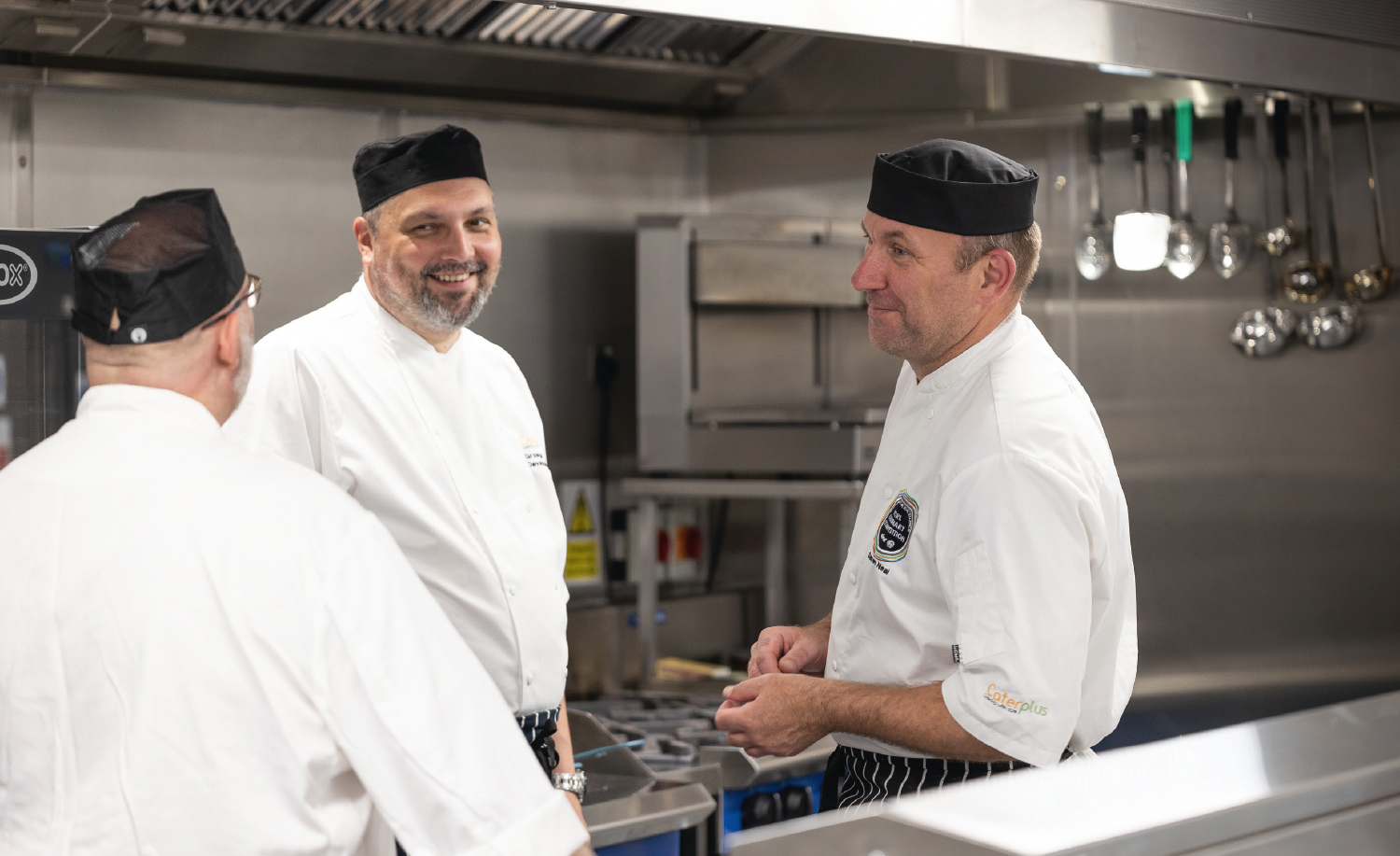
“Care home providers run a business but should never lose sight of the fact that the food they create is keeping customers healthy and extending their quality of life.”
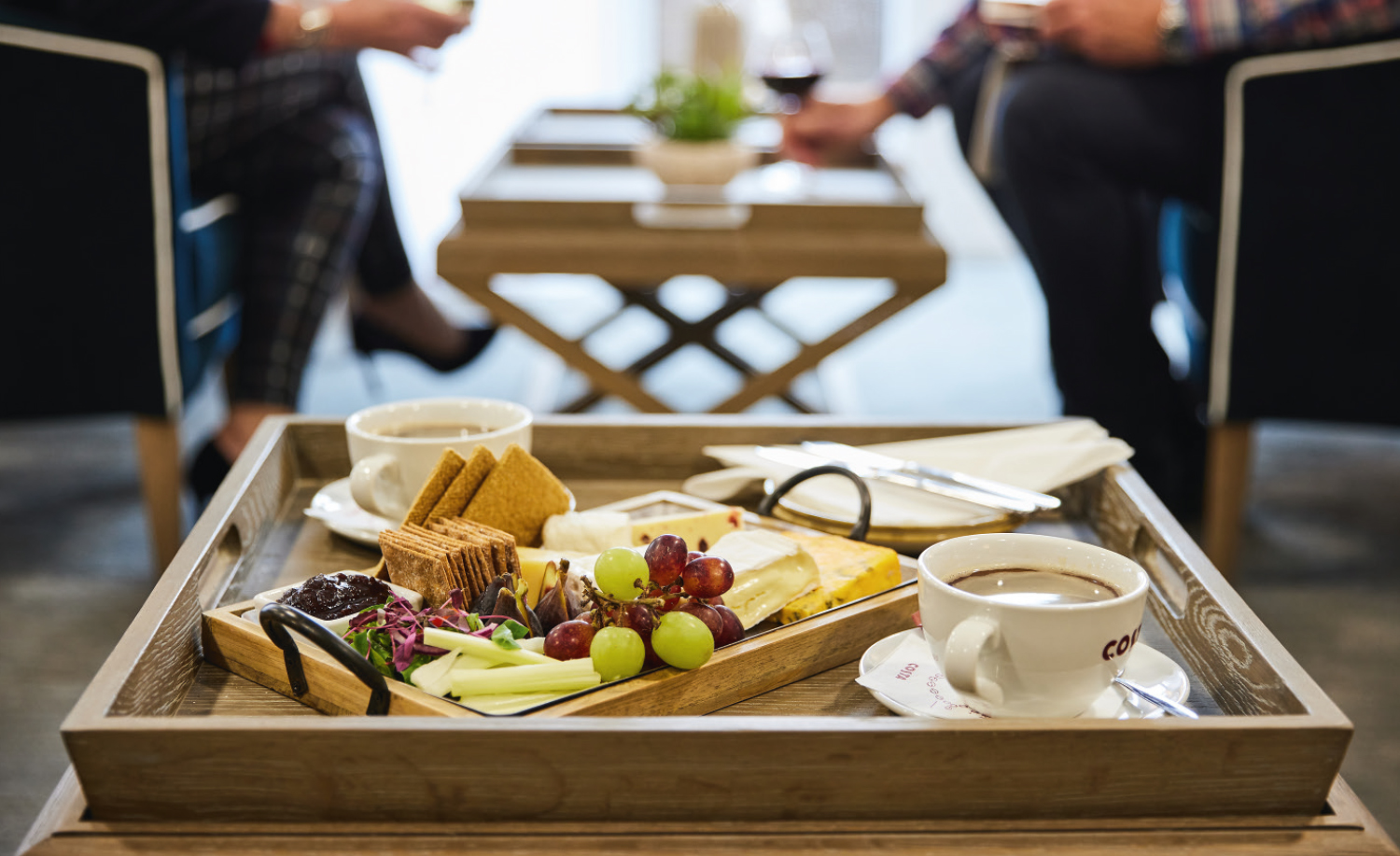
“We created Cake Shakes for residents losing weight due to lack of appetite or their condition. Having one of these drinks a day adds 3,000 calories to their weekly intake.
Mince pie, lemon drizzle and sticky toffee are just a few of the 14 different nostalgic flavours which also help the kitchen make the best use of any leftover cake.
We break all the rules and blend the cake with ice cream, full fat milk, butter and whipped cream to give people with food anxiety due to end-of-life conditions, denture issues or toothache a heavily fortified treat.
We’ve also introduced Superjack bars, flapjack cakes with 250 calories per 50g piece. They’re a in a mix of peanut butter, chocolate, nuts and sticky stuff and also come lactose free. It’s all about trial and error and we’ve had quite a few failures, but when we find something that works, the customers like it and the dieticians say ‘yes’, we run with it.”
“I work in a team of six who share my passion for thinking differently about how to meet the needs of a unique and respected audience.
We’ve been working with Texture Modified Foods (TMF) for people with chewing or swallowing difficulties and found it’s possible to create most plates in a soft and safe way with all the nutrition and aesthetic appeal of a regular meal.
The individual elements are graded, from pureed through to minced and moist, soft and bite-sized and soft and easy to chew. The consistency has to be perfect for each person’s medical needs, which is why chef training is so critical.
We turned peas into a puree that looks like peas. We’ve recreated a Christmas dinner of turkey and trimmings which tasted like the real thing. The look on the faces of residents who previously couldn’t have the same as their friends makes it worthwhile, because inclusion is so important in what we do.”
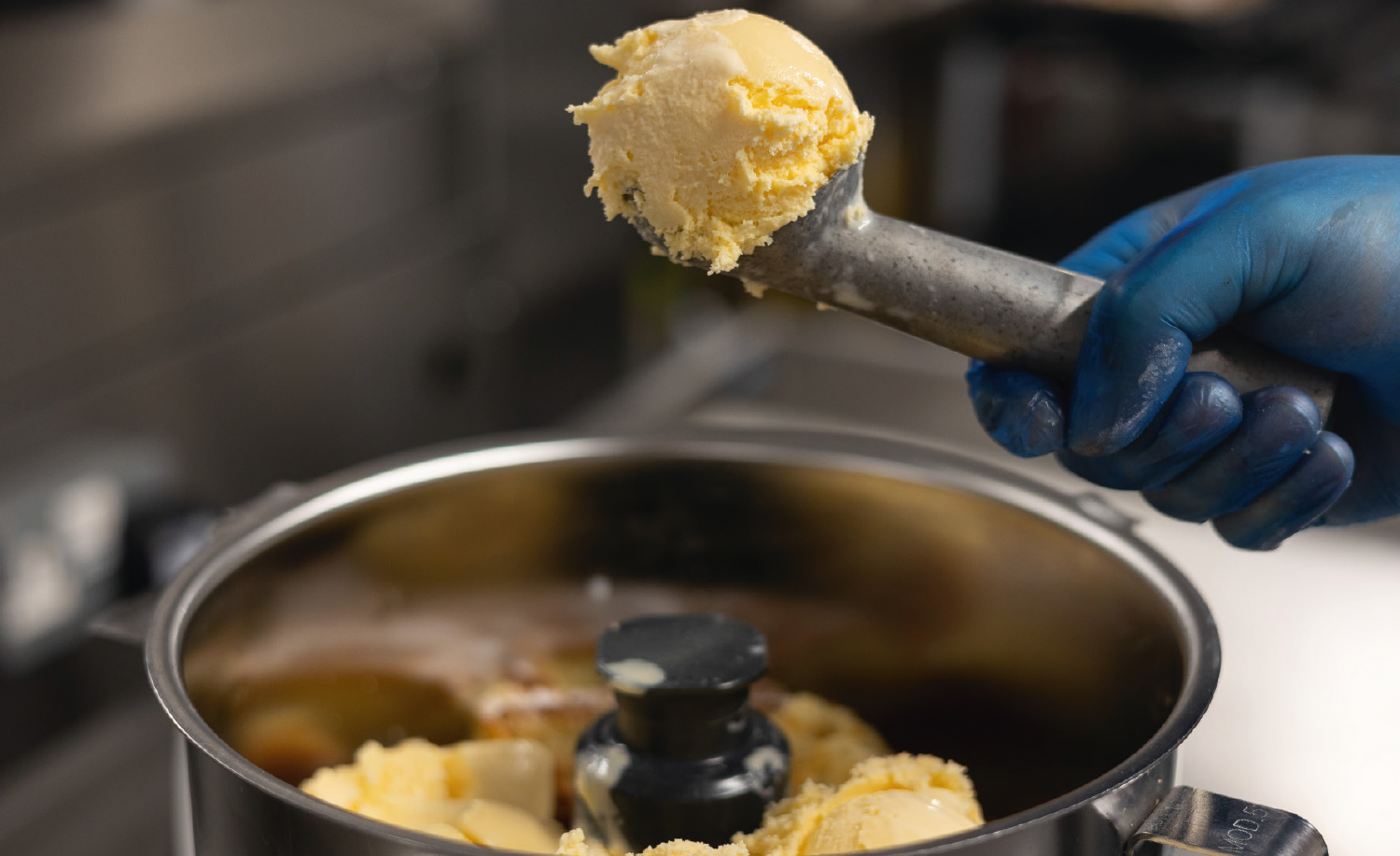
“The face of the care sector is changing as people travel more and want different kinds of food. Asian and Jamaican food is growing in popularity.
We always strive to match the demographic or location of the home with locally sourced ingredients that residents will recognise and love, because they’re very discerning. It also helps us remain sustainable and aware of our carbon footprint.”
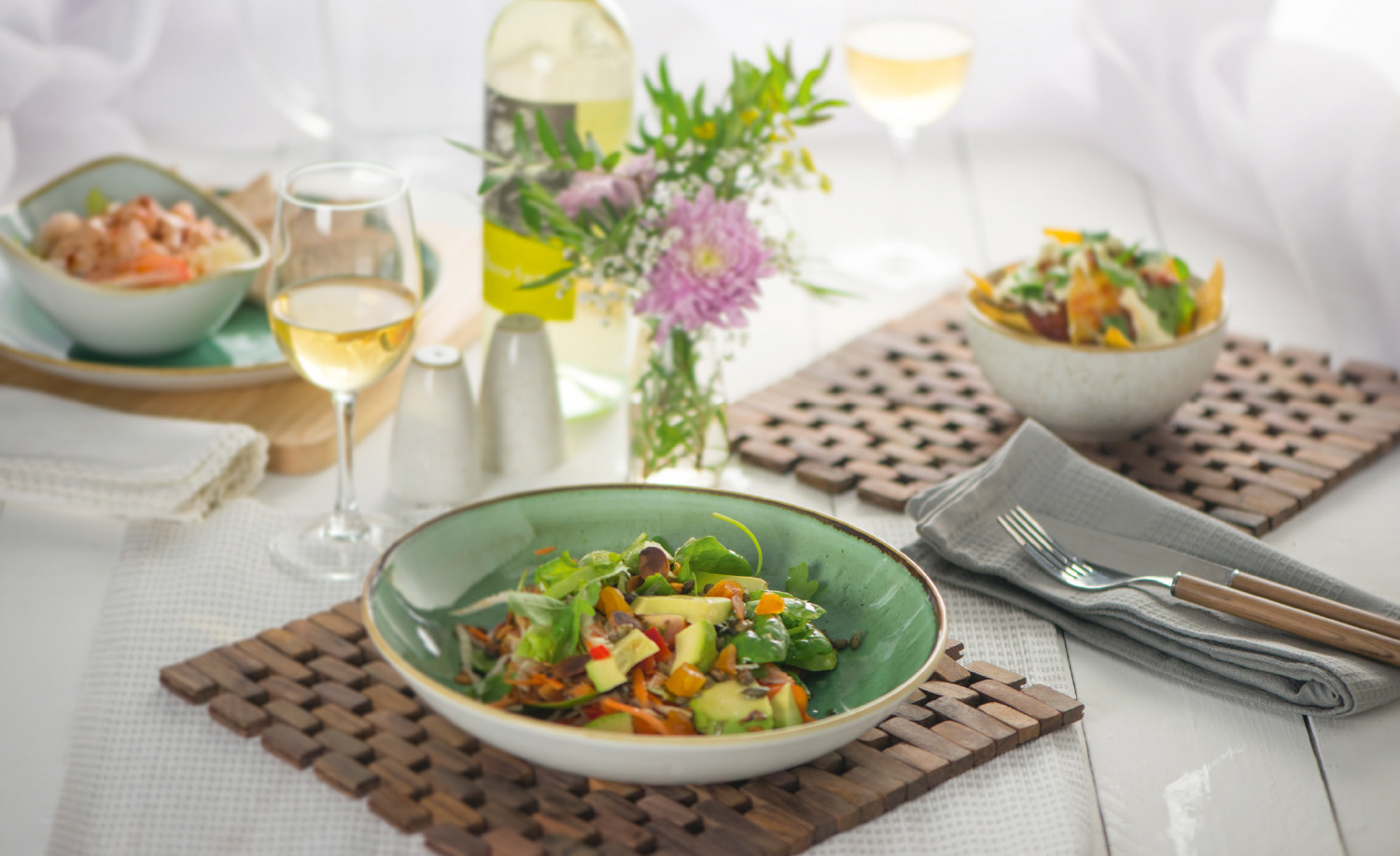
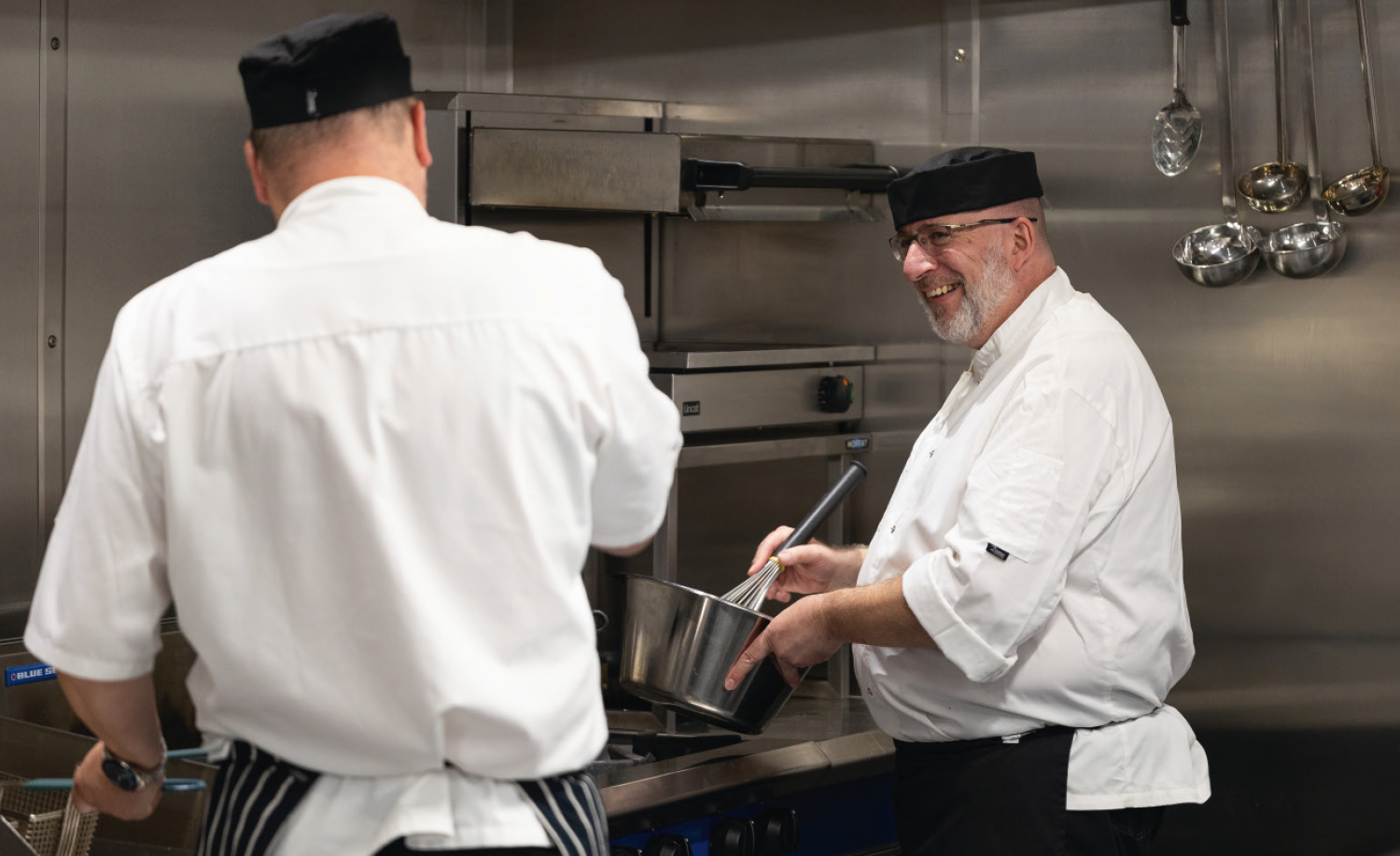
“Food has the power to improve residents’ quality of life on many levels. That’s why we make sure engagement is always a priority, both within our teams and with the people we cook for.”
Darren has spearheaded a raft of initiatives to develop a common purpose within the firm’s care sector to enhance training, operations, recruitment, retention… and fun.
“This sector can be challenging due to the sometimes complex nature of what we’re doing and who we’re doing it for, which is why it also needs to be fun.
On the business side of things, we run a Health, Care and Retirement Living Chef of the Year Competition, hold mentor days and competitions, stage ‘ready, steady cook’ shows and even livestream events from farms and beaches.
We hold Bake Offs and other events at homes to ensure food is a focal point for people to come together. Only by having that engagement can you make sure that what goes on the plate is right.”
A robot that delivers food to residents, sings, tell jokes and purrs when she’s stroked is another weapon in the team’s engagement armoury.
BellaBot has joined the front of house team at a retirement village delivering trays of food to tables and then clearing up, leaving her human colleagues to spend more time interacting with residents.
The company is also introducing interactive sensory tables, a portable projection system that encourages and rewards the motion of users in 150 different activities, from painting flowers and walking through fish-filled water to playing football or shove ha’penny.
“We’re always innovating to grow engagement between us and residents, and further the holistic approach to our food offering. And the residents love it.”
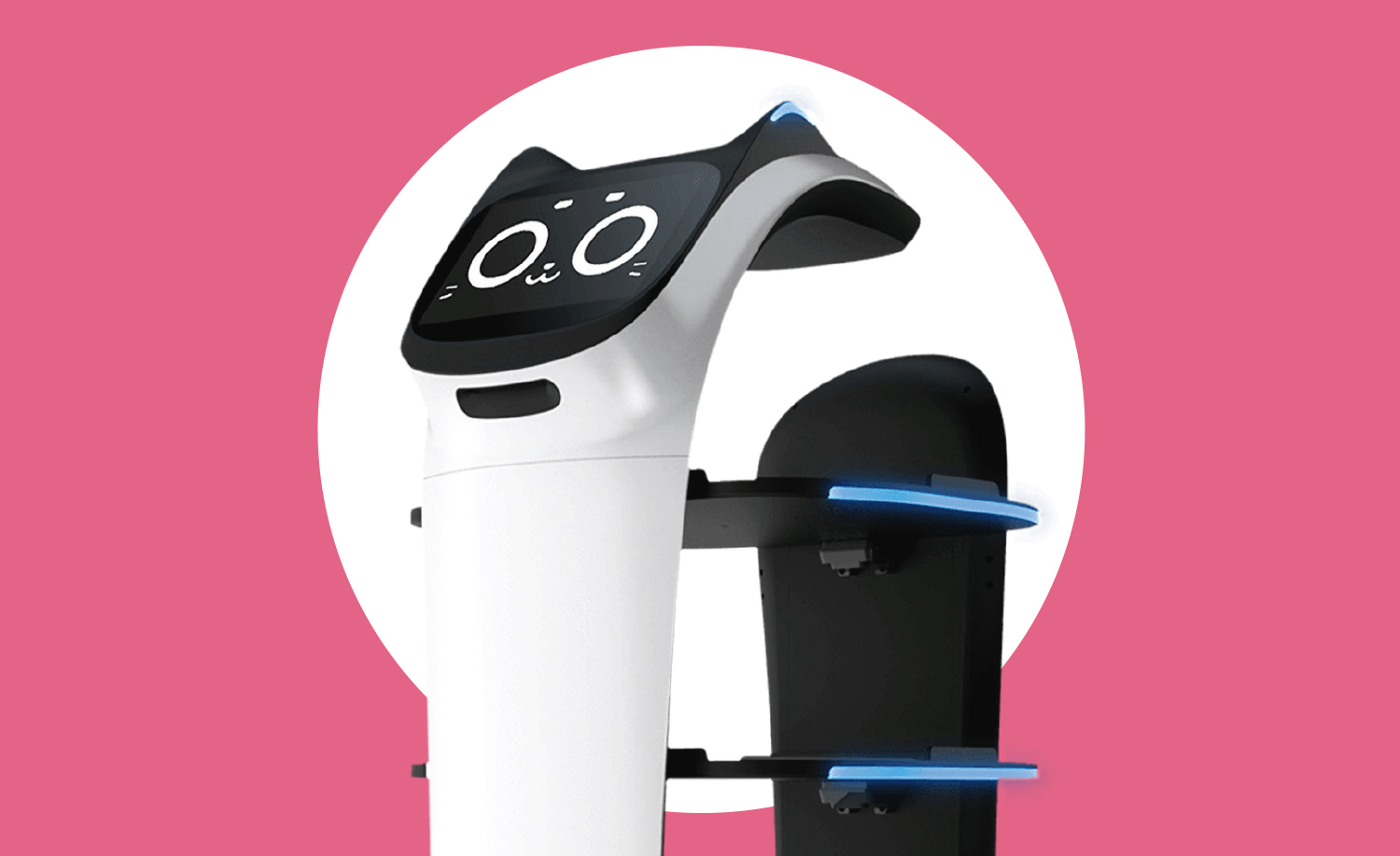
“The complexities and challenges of working in the care sector are many, but I can honestly say that it’s an area where chefs and their teams will learn the most.”
Sign in to save topics you love, and build your archive of events, menus and articles.